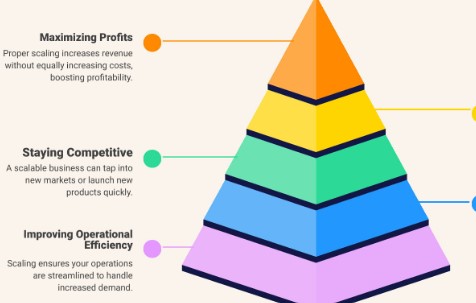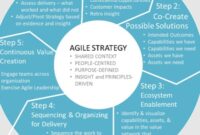Scaling a business effectively involves strategically managing growth without sacrificing quality or profitability. It’s more than just increasing revenue; it’s about building a sustainable and adaptable infrastructure.
1. Solidify Your Foundation: Before scaling, ensure your core business operations are efficient and well-defined. This includes clearly documented processes, robust technology systems, and a strong company culture. Identify and address any bottlenecks or inefficiencies in your current workflow. Invest in automation and tools that streamline operations and reduce manual tasks. A strong foundation allows you to replicate success more easily.
2. Invest in Your Team: Your team is your biggest asset. Scaling requires a skilled and motivated workforce. Invest in training and development to upskill your existing employees and attract top talent. Delegate effectively and empower employees to take ownership. Consider building out a leadership team that can oversee specific areas of the business. Clear roles and responsibilities are crucial for efficient scaling.
3. Embrace Technology: Technology is essential for scaling. Cloud-based solutions, CRM systems, project management tools, and automation platforms can significantly improve efficiency and collaboration. Analyze your current tech stack and identify areas where technology can improve productivity and reduce costs. Implement scalable systems that can handle increased workloads and data volumes. Don’t be afraid to experiment with new technologies to stay ahead of the curve.
4. Focus on Customer Acquisition and Retention: Scaling requires a steady stream of new customers, but it’s equally important to retain existing ones. Develop a comprehensive marketing strategy that targets your ideal customer and leverages multiple channels. Invest in customer relationship management (CRM) to personalize interactions and build loyalty. Provide excellent customer service to ensure satisfaction and encourage repeat business. A loyal customer base provides a stable foundation for growth.
5. Monitor and Adapt: Scaling is an ongoing process that requires constant monitoring and adaptation. Track key performance indicators (KPIs) to measure your progress and identify areas that need improvement. Regularly review your strategies and be prepared to make adjustments as needed. Market conditions, customer preferences, and competitive landscapes are constantly evolving, so you need to be agile and responsive to change. Data-driven decision-making is crucial for successful scaling.




